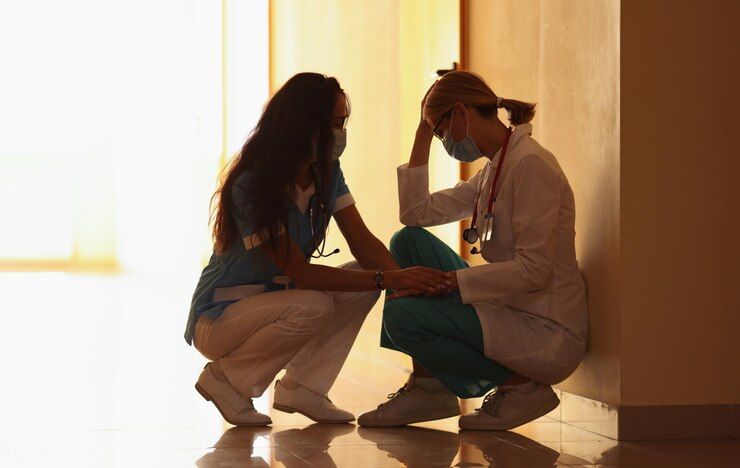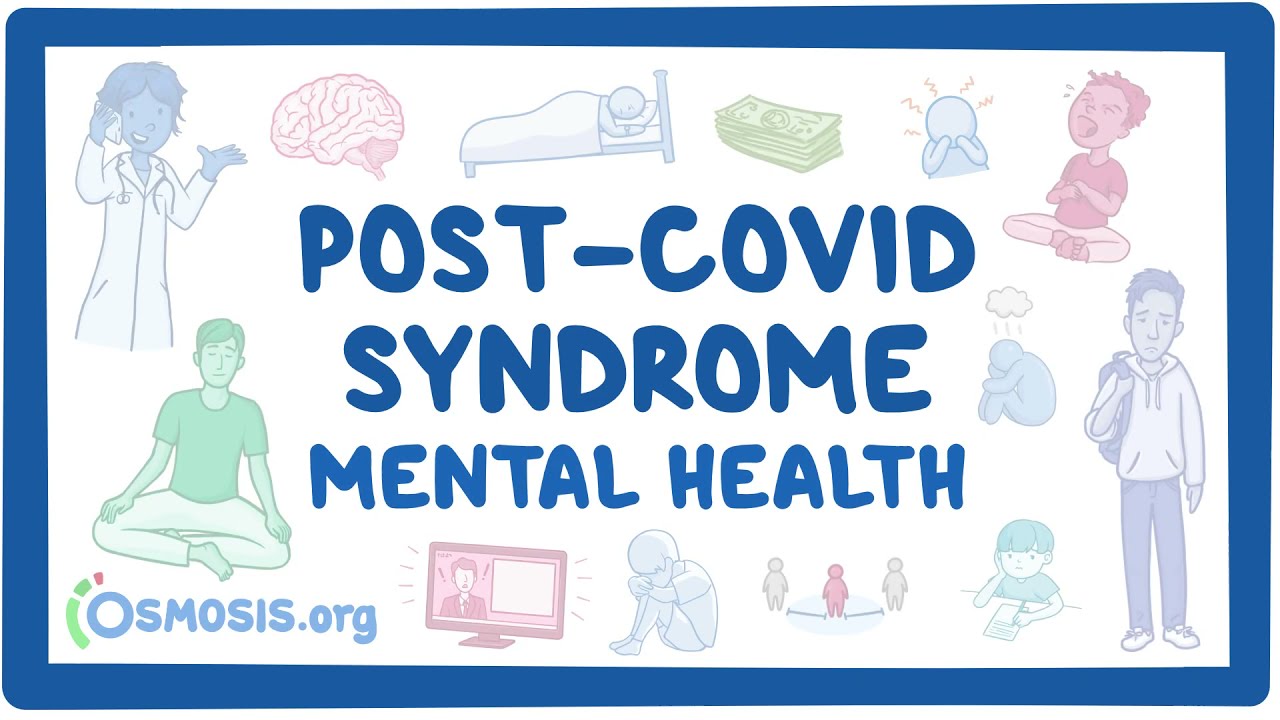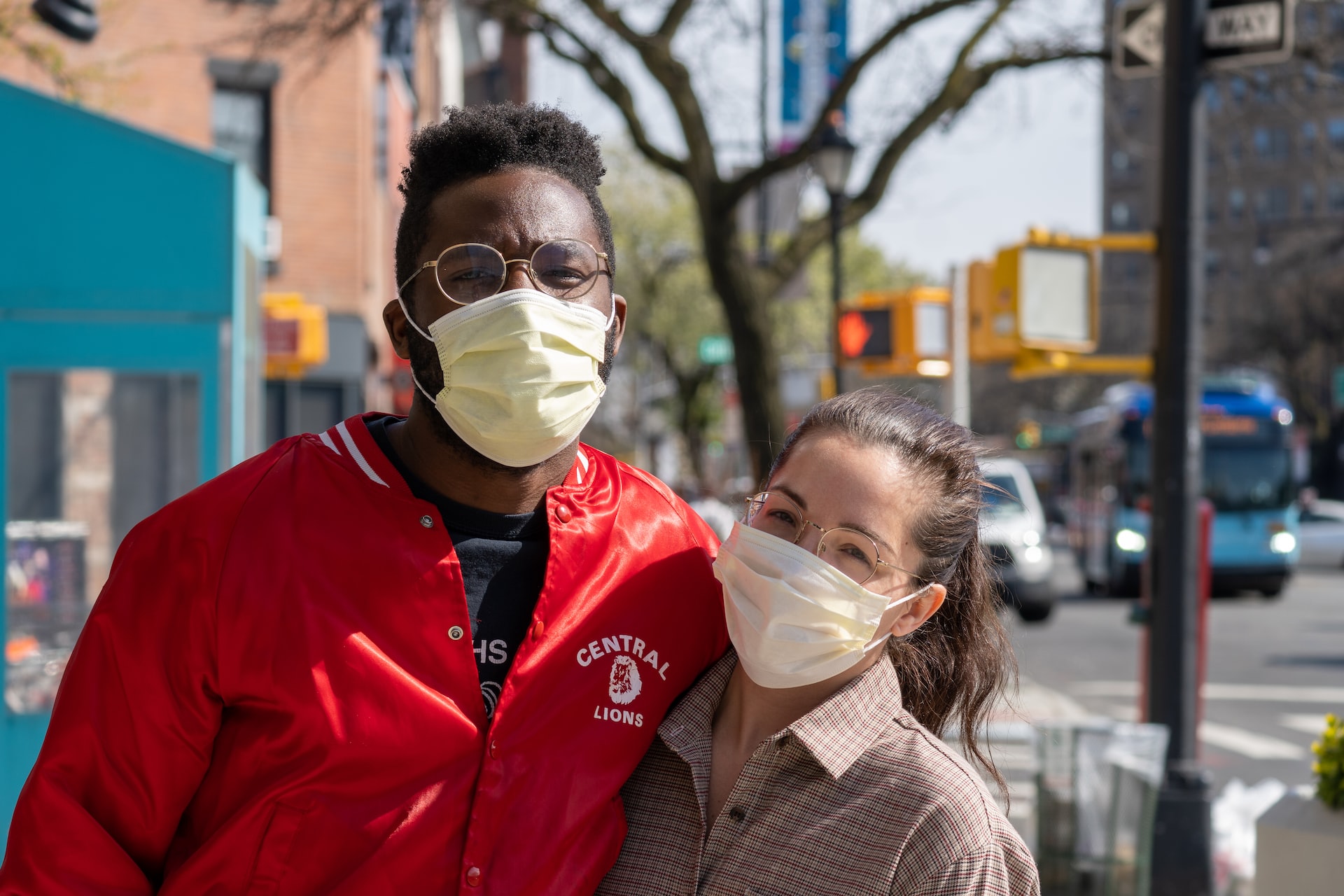COVID Trauma - Its Psychological Effects And How To Cope With Them
An epidemic of COVID-19 has caused widespread trauma. The director general of the World Health Organization (WHO) said this year that the epidemic had caused more tremendous collective trauma than World War II. As the psychological and physiological effects of the COVID trauma will linger for a long time, we must have the knowledge and tools to help each other recover from this worldwide disaster.
Author:Suleman ShahReviewer:Han JuSep 22, 20223.6K Shares368.5K Views

An epidemic of COVID-19 has caused widespread trauma. The director general of the World HealthOrganization (WHO) said this year that the epidemic had caused more tremendous collective trauma than World War II.
As the psychological and physiological effects of the COVID traumawill linger for a long time, we must have the knowledge and tools to help each other recover from this worldwide disaster.
A traumatic experience causes extreme fear or distress and may negatively affect a person's physical or mental health. Mass trauma refers to painful experiences on a massive scale.
Post-COVID Trauma Impacts
COVID-19 affects employment, schools, and mental health globally. With so much uncertainty as the epidemic enters its third year, it's hardly unexpected that our mental health has deteriorated. As the number of fatalities from the virus rises daily, some cannot cope.
They've lost family members, friends, and neighbors. 31% of U.S. people feel anxiety, according to the Centers for Disease Control and Prevention (CDC). Another 57% of people in eight English-speaking nations had suffered COVID-19-related trauma, according to another research. The physical and emotional effects of the epidemic will be felt for years, so we must be prepared to help one another through this global disaster.
Traumatic incidents may cause significant and lasting emotional discomfort, depression or anxiety, behavioral changes, problems self-regulating, nightmares, drug usage, and difficulty eating and sleeping. Traumatic stress is a chronic, everyday reaction to an incident.
A person suffering extreme stress may develop an acute stress disorder within a month of trauma exposure. This may cause unhappiness and prevent socialization, relationships, and work. The individual may avoid or withdraw from daily trauma cues. Most people recover with family, friends, and professional assistance within a month.
Repeated exposure to stressful situations throughout childhood and adolescence may significantly influence the brain and nervous system. Long-term responses to a stressful experience may be classified as post-traumatic stress disorder and last months or years.
Post-traumatic stress disorder may include flashbacks, recurring nightmares, intrusive memories, withdrawal, irritability, and fury. According to the American Psychiatric Association, it may cause persistent musculoskeletal discomfort, high blood pressure, nausea, and, in difficult situations, cardiovascular illness.

Post-COVID syndrome: Mental health
Psychological Effects Of The COVID Trauma
Reports have shown that the 2019 coronavirus disease (COVID-19) pandemic has caused a lot of mental suffering, so much so that a strategy for community health is needed. Initial research on COVID-19 showed widespread psychological distress, with the most significant effect felt by historically excluded and high-risk communities.
According to the National Center for Health Statistics (NCHS) in the United States (US), 40% of individuals had signs of anxiety or depression in January 2021. In contrast, 10%, or 11%, of the adult population had anxiety and depressive symptomology in 2019.
There is growing evidence from research involving children, medical staff, people infected with COVID-19, and those with preexisting psychiatric illnesses. All of them report adverse mental health outcomes associated with the pandemic.
These results corroborate the danger for those who already have mental health issues, which is consistent with past patterns. Some experts say that the effects of the pandemic on the economy, jobs, health disparities, and the future have caused a worldwide mental health crisis.
Anxious ruminating is heightened, and coping skills are diminished due to the pandemic's effects on social isolation, lack of daily routine, and restricted personal relationships. Anxiety, depression, drug addiction issues, and post-traumatic stress disorder (PTSD) are more likely to be diagnosed in trauma survivors.
Like September 11 in the U.S., the COVID-19 pandemic would be considered a mass trauma event. However, the impact of the experience would be amplified by the length of the pandemic and how easy it would be to spread information about it.
Support In COVID Trauma Recovery
After experiencing trauma, having the support of loved ones and specialists in the mental health field may be quite helpful in the healing process. As a first responder, you may use the MHFA Action Plan in various ways to care for yourself and your loved ones.
- Each individual afflicted by the COVID-19 pandemic will react uniquely to their trauma, so screening for suicidal ideation and self-harm is essential. Consider the best method to approach the individual, keeping in mind that they may be showing suicidal thoughts, and then provide a calm, non-threatening setting to have the conversation.
- Don't form an opinion as you listen. Dialogue may be initiated if the individual is not in immediate danger. Be aware that trauma may cause elevated anxiety levels, so be cautious in your approach and have them share their thoughts and emotions. People's reactions to a traumatic event can be overwhelming, so listening to them before giving them advice is essential.
- Reassure the individual by providing them with information and support. It's crucial to be truthful in your contacts and conversations with someone having a trauma reaction since that individual may not have had the experience or help in the past. It's helpful to have materials on hand that you may also provide to them.
- Educate the person you care about about the various local and national services available to assist with addressing trauma and encourage them to make use of them. Assure them they have your support in their endeavor.
- It is essential to encourage a person who has experienced trauma to use self-help methods and other forms of support, such as 12-step programs and their network of family and friends. Recovery and health Peer-provided trauma action planning have been demonstrated to be helpful.
The COVID-19 epidemic has been a once-in-a-lifetime experience that has uniquely touched us. Even if going through a mass trauma is difficult, we can all help one another get through the difficulties and adjustments.
People Also Ask
Who Are At Higher Risk Of Developing Serious Illness From COVID-19?
Illness is more common in the elderly and individuals with pre-existing conditions, such as diabetes, asthma, or cancer.
Where Was COVID-19 First Discovered?
COVID-19 was first detected in humans in Wuhan, China. There are also questions about whether the virus became dangerous before or after the spillover and how it first spread to humans.
How Long Can COVID-19 Survive On Surfaces?
Coronaviruses may live on surfaces for a few hours to a few days after being released from the body. A person who touches a contaminated surface may then transfer the virus to their eyes, nose, or mouth, where it may enter the body and cause illness.
What Can I Do To Cope With The Effects Of COVID-19 Quarantine?
Negative consequences for health, well-being, and quality of lifehave been linked to insufficient levels of physical exercise and sedentary behavior. The stress of self-quarantine may further compromise citizens' mental health.
Keeping your mind at ease and continuing to look after your health may greatly aid regular exercise and relaxation practices. The World Health Organization (WHO) says that people should exercise at least 150 minutes a week at a moderate intensity or 75 minutes a week at a vigorous intensity.
Final Words
When it comes to mass casualties, COVID-19 is unprecedented. The most intricate reaches of our social networks and the foundations of our realities have been permanently tinted. Everything has a new, possibly devastating meaning in the virus age, from how we work and live together to how we see each other as fellow citizens.
But every epidemic has a conclusion. This one will work as well. But to dismiss the tragedy, to go on, and pay it no thought, won't help. It would insult our intelligence and the wisdom of the ages. Maybe even into the future!

Suleman Shah
Author
Suleman Shah is a researcher and freelance writer. As a researcher, he has worked with MNS University of Agriculture, Multan (Pakistan) and Texas A & M University (USA). He regularly writes science articles and blogs for science news website immersse.com and open access publishers OA Publishing London and Scientific Times. He loves to keep himself updated on scientific developments and convert these developments into everyday language to update the readers about the developments in the scientific era. His primary research focus is Plant sciences, and he contributed to this field by publishing his research in scientific journals and presenting his work at many Conferences.
Shah graduated from the University of Agriculture Faisalabad (Pakistan) and started his professional carrier with Jaffer Agro Services and later with the Agriculture Department of the Government of Pakistan. His research interest compelled and attracted him to proceed with his carrier in Plant sciences research. So, he started his Ph.D. in Soil Science at MNS University of Agriculture Multan (Pakistan). Later, he started working as a visiting scholar with Texas A&M University (USA).
Shah’s experience with big Open Excess publishers like Springers, Frontiers, MDPI, etc., testified to his belief in Open Access as a barrier-removing mechanism between researchers and the readers of their research. Shah believes that Open Access is revolutionizing the publication process and benefitting research in all fields.

Han Ju
Reviewer
Hello! I'm Han Ju, the heart behind World Wide Journals. My life is a unique tapestry woven from the threads of news, spirituality, and science, enriched by melodies from my guitar. Raised amidst tales of the ancient and the arcane, I developed a keen eye for the stories that truly matter. Through my work, I seek to bridge the seen with the unseen, marrying the rigor of science with the depth of spirituality.
Each article at World Wide Journals is a piece of this ongoing quest, blending analysis with personal reflection. Whether exploring quantum frontiers or strumming chords under the stars, my aim is to inspire and provoke thought, inviting you into a world where every discovery is a note in the grand symphony of existence.
Welcome aboard this journey of insight and exploration, where curiosity leads and music guides.
Latest Articles
Popular Articles
